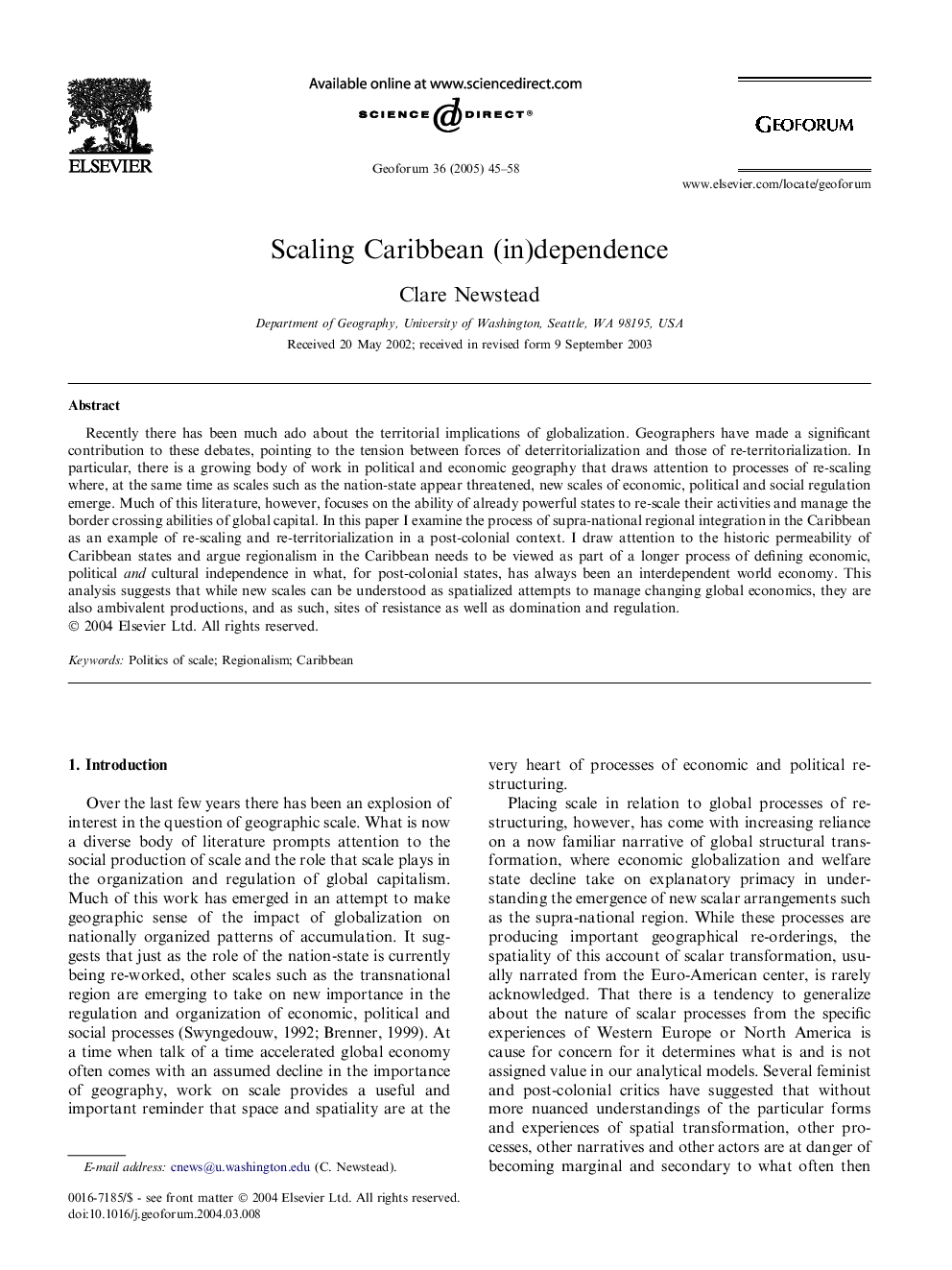| Article ID | Journal | Published Year | Pages | File Type |
|---|---|---|---|---|
| 9552354 | Geoforum | 2005 | 14 Pages |
Abstract
Recently there has been much ado about the territorial implications of globalization. Geographers have made a significant contribution to these debates, pointing to the tension between forces of deterritorialization and those of re-territorialization. In particular, there is a growing body of work in political and economic geography that draws attention to processes of re-scaling where, at the same time as scales such as the nation-state appear threatened, new scales of economic, political and social regulation emerge. Much of this literature, however, focuses on the ability of already powerful states to re-scale their activities and manage the border crossing abilities of global capital. In this paper I examine the process of supra-national regional integration in the Caribbean as an example of re-scaling and re-territorialization in a post-colonial context. I draw attention to the historic permeability of Caribbean states and argue regionalism in the Caribbean needs to be viewed as part of a longer process of defining economic, political and cultural independence in what, for post-colonial states, has always been an interdependent world economy. This analysis suggests that while new scales can be understood as spatialized attempts to manage changing global economics, they are also ambivalent productions, and as such, sites of resistance as well as domination and regulation.
Related Topics
Social Sciences and Humanities
Economics, Econometrics and Finance
Economics and Econometrics
Authors
Clare Newstead,
